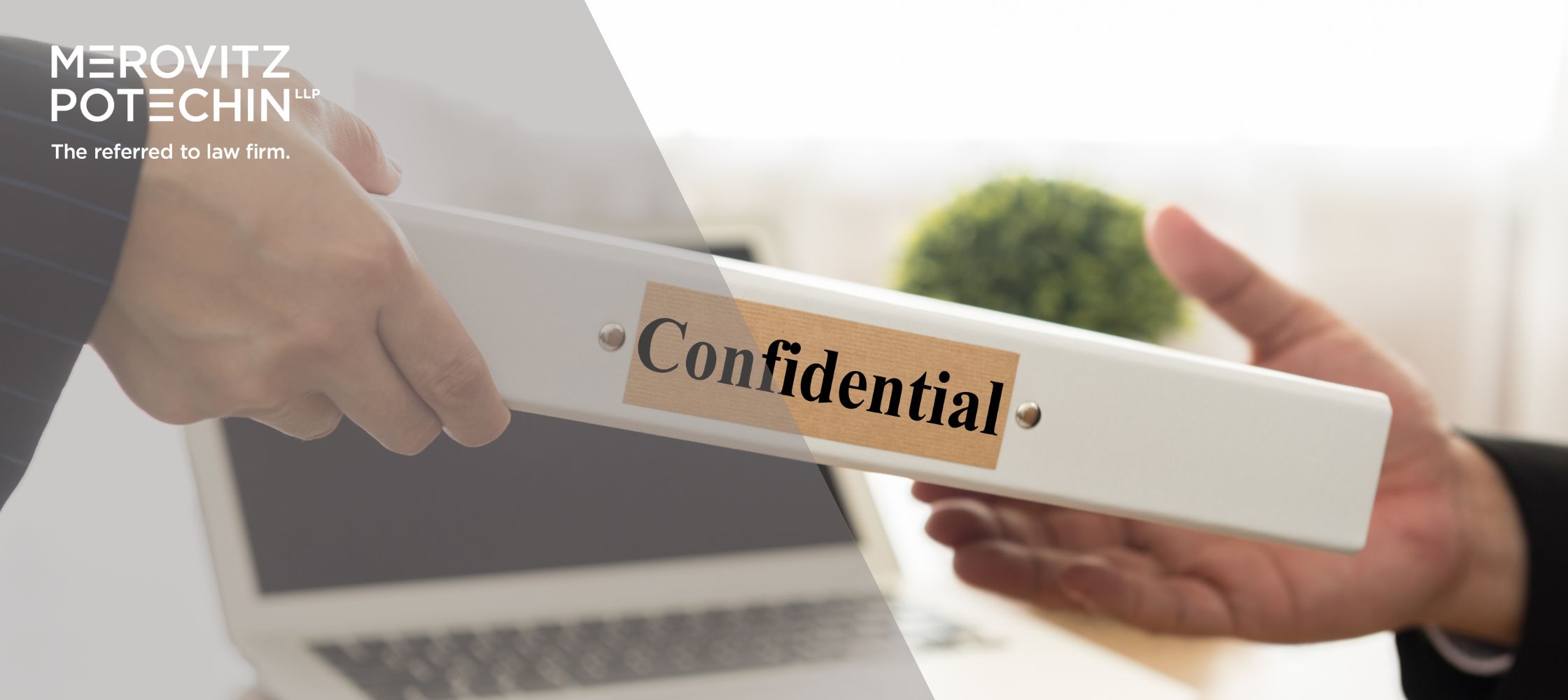Categories
Bradshaw v. Hougassian et al.: Understanding Resulting Trusts and the Requirements of Section 13 of the Evidence Act in Estate Disputes

Introduction: Understanding Beneficial Ownership in Estate Disputes
Property disputes, particularly within families, often bring forth the tension between beneficial ownership and legal ownership. Beneficial ownership arises when someone has a financial or equitable interest in a property despite not holding legal title.
In estate disputes there is an additional component that further complicates matter. Specifically, section 13 of the Evidence Act which impose corroboration requirements for claims involving a deceased person’s estate. As a result of section 13, a party cannot solely rely on their uncorroborated testimony to support their claim. The rationale being that the deceased person is unable to testify to contradict or confirm the claims, making it crucial for courts to ensure fairness and accuracy by supporting evidence. The requirement for corroboration does not automatically lead to the failure of claims lacking additional evidence. Its purpose is to guarantee that such evidence is rigorously examined and supported by other material evidence.
The recent Ontario Court of Appeal decision in Bradshaw v. Hougassian et al. offers a compelling illustration of how these legal principles intersect and complicate property disputes.
Background of the Case: Bradshaw v. Hougassian et al.
In Bradshaw, siblings disputed ownership over a house purchased in 1980 with money from one of the children and contributions from the mother. At the time of purchase:
- Jack Hougassian contributed $8,000 of his own money and took out a $20,500 mortgage in his name.
- His mother, Violet Hougassian, contributed $10,000 toward the purchase.
- Although the purchase agreement bore both their signatures, Jack registered the legal title solely in his name.
Violet moved into the house with her children after separating from her husband. From 1992 until her death in 2018, she lived there alone. Initially, she covered the mortgage and utilities. After a year, Jack assumed these expenses. Over time, Jack, who became financially successful, provided substantial support to Violet. In her will, Violet excluded Jack—not out of animosity, but because of his financial stability relative to her other children.
Key Facts of the Bradshaw v. Hougassian Case
The key legal issue in this case centered on the question of how Violet’s original $10,000 contribution towards the purchase of the house should be characterized: was it a loan, as Jack claimed, or was it intended to secure a beneficial ownership interest in the property, as argued by Violet’s estate? Jack contended that the $10,000 was a loan he had repaid within a year, while Violet’s executor maintained it was a contribution giving rise to a “purchase money resulting trust,” which conferred a proportional ownership stake in the property. At trial, the judge found that a resulting trust existed and based on Violet’s initial contribution, granted Violet’s estate a 26% share of the property.
What Are Resulting Trusts and How Did the Court Apply Them in This Case?
The court explained that a resulting trust establishes a partial ownership interest without the need for an express agreement. In the context of real property, it arises when one person contributes to the purchase price of a property but is not listed on the legal title. In a “purchase money resulting trust,” the law presumes that the contributor intended to retain a beneficial ownership interest. This presumption is rooted in the principle that significant financial contributions are not typically intended as gifts.
This presumption can be rebutted by titleholders providing compelling evidence that the contribution was intended as a gift or a loan. Courts emphasize the contributor’s intent at the time the funds were provided. Subsequent actions or behavior, while potentially informative, cannot override the original intent.
The Impact of Section 13 on Evidence in Estate Litigation
Jack claimed that Violet’s $10,000 was merely a loan. Under s.13, Jack’s testimony required corroboration he was testifying about events predating Violet’s death which could not be directly contested by her. However, the trial judge’s reasons made it clear that he did not accept Jack’s evidence that his mother had loaned him $10,000 in 1980, not merely because it was uncorroborated, but because he found it implausible that Violet would have loaned Jack money when he already had enough to cover the down payment, and she needed the money for herself. In his reasons, the trial judge explicitly described Jack’s explanation for the loan as “not credible or plausible” given Violet’s circumstances at the time. Jack subsequently challenged the trial judge’s application of s. 13.
What the Appellant Argued and How the Court Reached Its Decision
The trial judge found that the circumstances at the time of the purchase made Jack’s “loan” assertion implausible and that he lacked corroborating evidence to overcome this implausibility. Jack, at the time relatively young but financially capable, had no pressing need for a loan. Violet, by contrast, was facing a new life on her own, and would have been unlikely to lend Jack her entire savings without such generosity securing a beneficial interest in the home.
Without additional evidence demonstrating Jack’s assertion that Violet had intended the money to be a loan, the trial judge concluded that Jack’s claim lacked credibility and failed to rebut the presumption of a resulting trust. By confirming Violet’s estate owned a 26% interest in the property, the court demonstrated that only plausible and credible claims—supported by objective evidence—will carry the day.
Lessons from Bradshaw v. Hougassian for Estate Disputes
The decision in Bradshaw provides a clear example of how the principles of resulting trusts and the requirements of s. 13 of the Evidence Act operate in property disputes, particularly in the context of estate litigation. It demonstrates that:
- When someone contributes financially to the purchase of property without being on title, the law presumes they intended to retain a beneficial ownership interest, which may entitle them to a proportional share of the property.
- This presumption can be challenged, but titleholders must present strong evidence showing the contribution was a gift or loan.
- S. 13 of the Evidence Act ensures that claims against a deceased person’s estate are backed by reliable, corroborative evidence.
Conclusion: Resulting Trusts and Section 13 in Estate Litigation
The decision in Bradshaw v. Hougassian illustrates how courts apply the principles of resulting trusts and the corroboration requirements of Section 13 of the Evidence Act in estate disputes. When financial contributions are made toward the purchase of property without legal title, courts presume an intention to retain a beneficial ownership interest unless the titleholder can provide strong evidence to the contrary, such as proof of a gift or loan. Section 13 ensures that claims involving a deceased’s estate are supported by reliable evidence beyond uncorroborated testimony, given the deceased cannot refute such claims. In this case, the court upheld the presumption of a resulting trust due to a lack of credible and corroborated evidence from the titleholder, reinforcing the importance of objective evidence and the contributor’s intent at the time of the financial arrangement.
How Can We Help?
Property disputes involving resulting trusts and estate litigation can be complex and emotionally charged, particularly when family dynamics are involved. Understanding the implications of financial contributions, beneficial ownership, and the requirements under Section 13 of the Evidence Act is essential to protecting your rights and interests. At Merovitz Potechin, our experienced Estate Litigation Team can help you navigate these challenging legal matters by providing clear advice and practical solutions tailored to your unique situation. Contact us today to discuss your case and let us guide you through the legal process with care and expertise.
The content on this website is for information purposes only and is not legal advice, which cannot be given without knowing the facts of a specific situation. You should never disregard professional legal advice or delay in seeking legal advice because of something you have read on this website. The use of the website does not establish a solicitor and client relationship. If you would like to discuss your specific legal needs with us, please contact our office at 613-563-7544 and one of our lawyers will be happy to assist you.








